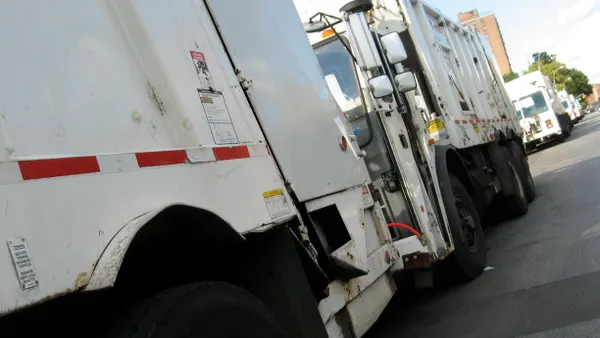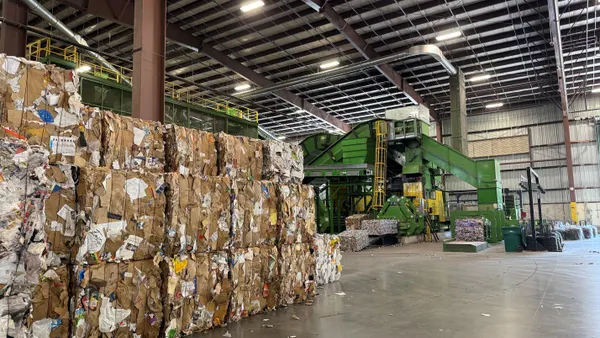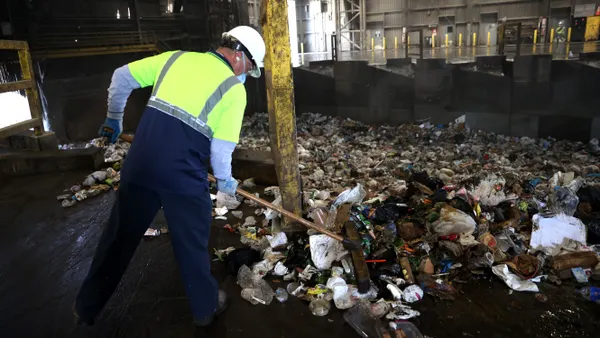Dive Brief:
- Maryland Gov. Larry Hogan has ended "zero waste" guidelines set by his predecessor, Martin O'Malley. Speaking at a Maryland Municipal League meeting, as reported by The Baltimore Sun, Hogan said the rules "usurped local authority" and "created overflowing landfills and unnecessary hardships for local governments."
- O'Malley issued the executive order shortly before leaving office in January 2015. The order set a statewide diversion goal of 85% by 2040 and directed the Department of the Environment to stop issuing permits for new landfill capacity, among other requirements.
- In repealing the "burdensome regulation," Hogan said the state would focus on more "achievable" recycling goals. Maryland's secretary of the environment told the Sun that the state will remain focused on reduction, reuse and recycling, but no new rule will be issued.
Dive Insight:
O'Malley's "zero waste" plans were always considered ambitious, but at the time he described them as necessary to contend with limited landfill capacity and increasing per capita disposal rates. The executive order also set a mandatory 65% recycling rate for state government and a 60% organic waste diversion rate by 2020. An emphasis was placed on waste reduction and green procurement, with a long list of potential strategies to pursue.
Environmental advocates were supportive of these goals, but they were also critical of O'Malley's accepting stance toward waste-to-energy facilities. The issue has been receiving particular attention in Baltimore recently, where plans for one WTE site fell through last year and local advocates are angling for the closure of a Wheelabrator facility as part of broader discussions about the city's long-term waste strategies.
Based on recent legislation signed by Hogan to require a state study on organics processing infrastructure and set standards for compostable plastic products, the administration still plans to stay engaged on waste-related issues with a more measured approach. What his decision to repeal O'Malley's executive order will mean in the long-term remains unclear, though it as an example of what can happen to the type of non-binding "zero waste" plans that many local governments have put in place when administrations change over.












